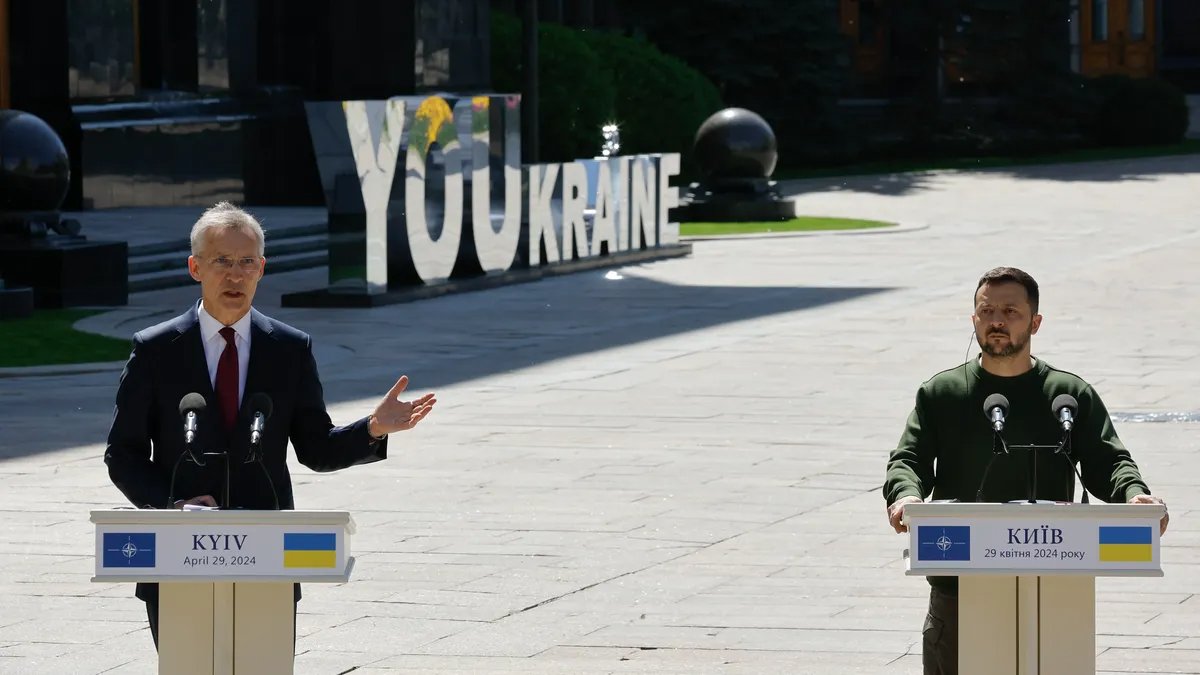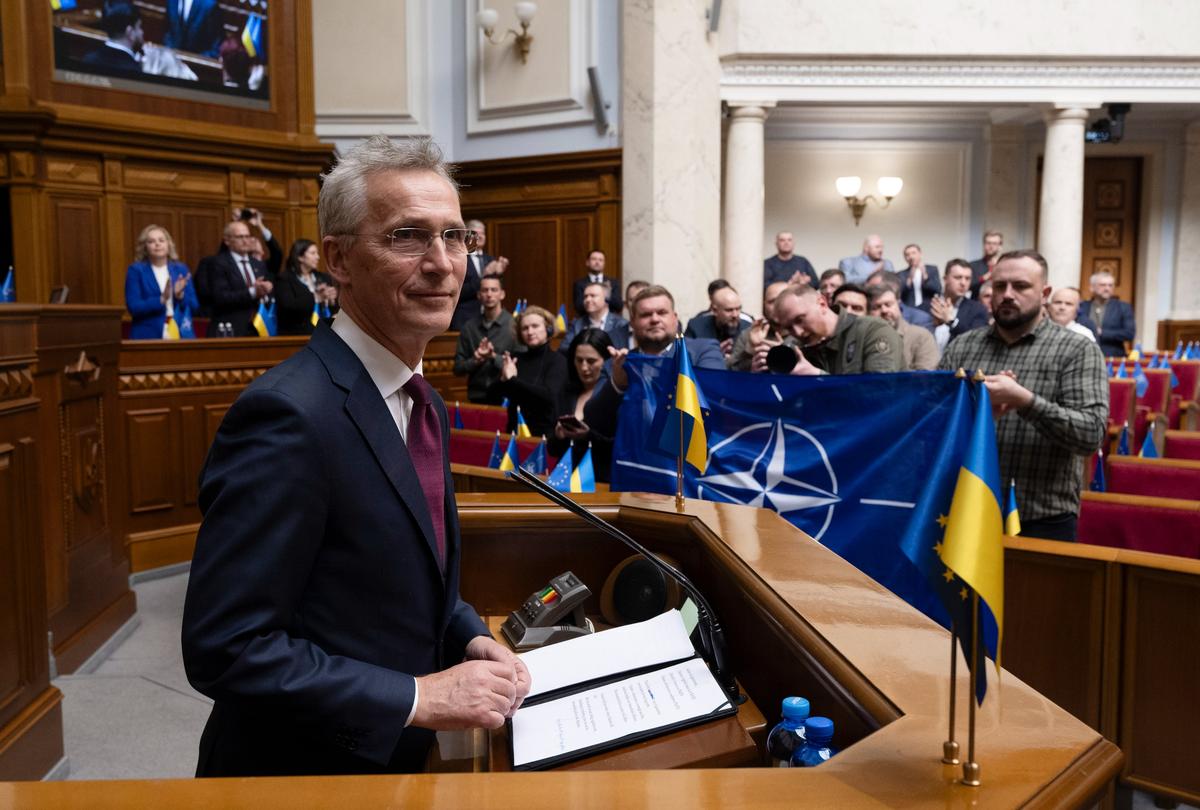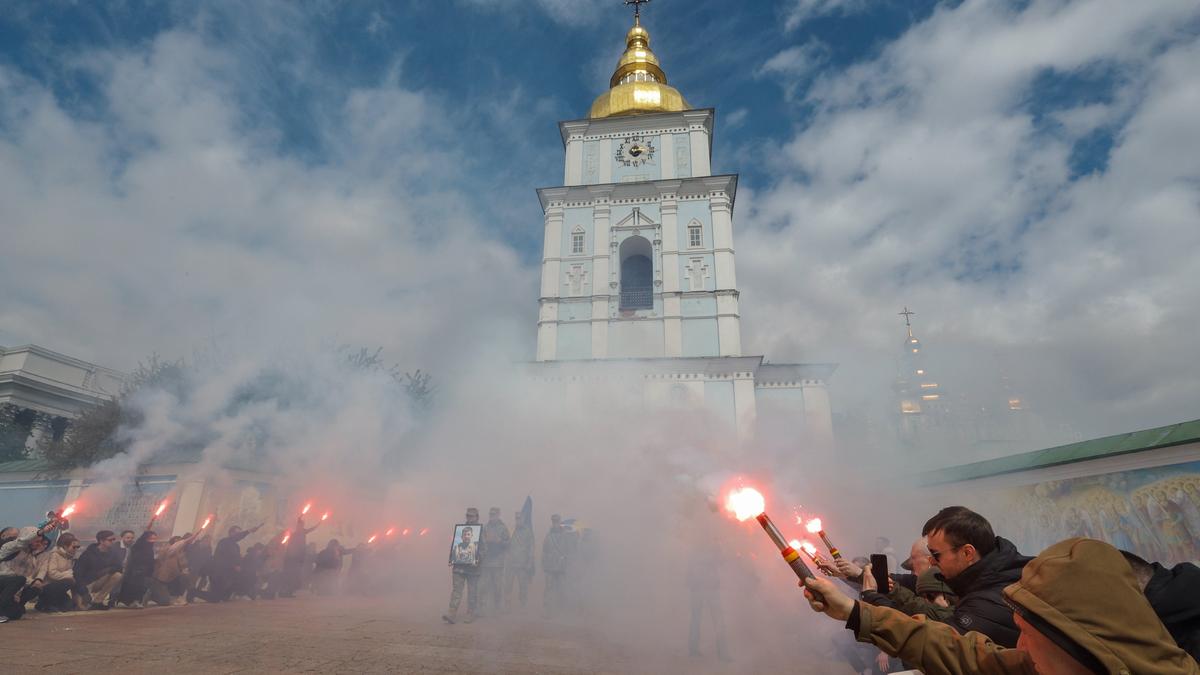As Western leaders commemorated the 80th anniversary of D-Day on 6 June, they should have kept in mind that just five years before the allied landings that liberated Europe from fascism, the French socialist and future fascist politician Marcel Déat had argued that French troops should not defend Poland against Nazi Germany.
“Fighting alongside our Polish friends, for the common defence of our territories, our property, and our freedoms, is a prospect that we can courageously envisage, if it is to contribute to maintaining peace,” he wrote in May 1939. “But to die for Danzig, no!”
Today, many fear that if Vladimir Putin wins his war of aggression against Ukraine, countries like Poland and the Baltic states will be his next targets. Some even suggest that instead of waiting for Russian forces to reach their borders, these countries should preemptively send troops to Ukraine to force Russia to withdraw from all Ukrainian territory and keep Putin at bay.
While such sentiments are not yet common in the West, some Western leaders are increasingly aware of the need for swift action. As French President Emmanuel Macron said in a May 2024 speech in Dresden, “Russia will be here tomorrow, [or] the day after tomorrow”.
The implication being that it would be easier to fight Russian forces on Ukrainian soil, with Ukraine’s army bearing the brunt of the fighting, than it would be to confront Putin’s military on NATO territory.

NATO Secretary General Jens Stoltenberg and Ukrainian President Volodymyr Zelensky at a joint press conference in Kyiv, Ukraine, 29 April 2024. Photo: SERGEY DOLZHENKO
This weekend’s Ukraine peace summit in Switzerland, as well as NATO’s 75th anniversary meeting in Washington in July, could make Putin more willing to consider a ceasefire. But Ukraine’s Western allies should not coerce Ukrainian President Volodymyr Zelensky into negotiating with a leader as untrustworthy as Putin. Instead, they should focus on strengthening Ukraine’s position and ensuring that the country achieves the peace and security it deserves.
To be sure, time is now working against Ukraine, and not just militarily. With this summer’s blackouts potentially foreshadowing an apocalyptic winter for Ukrainians, the country’s very survival is at stake. Given its desperate plight, NATO membership would be the best security guarantee for Ukraine.
However, given that Ukraine will not be invited to join the alliance as long as the war continues, NATO countries should deploy troops on the ground in Ukraine. This would help prevent the loss of additional Ukrainian territory while Ukraine’s military continues to fight to recapture the territories occupied by Russia.

NATO Secretary General Jens Stoltenberg visits Ukraine, 29 April 2024. Photo: ANDRII NESTERENKO
Five caveats are in order. First, such an action must not be viewed as acceptance of Russia’s rights to any of Ukraine’s sovereign territory. Second, this effort should involve a coalition of willing NATO members rather than the alliance as a whole. Some NATO countries, including Estonia, France, Lithuania, and Poland, have already signalled their readiness to join such a coalition, while others, like Robert Fico’s Slovakia and Viktor Orbán’s Hungary, are openly pro-Putin and would almost certainly opt out.
Given its desperate plight, NATO membership would be the best security guarantee for Ukraine.
Third, forces should be deployed only to the four-fifths of Ukraine’s territory that is not occupied, specifically the 20 administrative regions never claimed by Russia. Although Russia’s annexation of Luhansk, Donetsk, Zaporizhzhia and Kherson is illegal, this strategy would avoid giving credence to the Kremlin’s absurd assertion that NATO poses a threat to “its” territory.
Fourth, NATO countries should not deploy combat troops, but rather personnel whose roles would include training, which is currently conducted abroad in costly and logistically complicated ways, as well as clearing minefields and maintaining equipment, thus freeing up Ukrainian troops for actual combat. This approach has already been suggested by some of Ukraine’s allies, such as France, while other countries may discreetly provide similar support.
Lastly, if Russian forces attack foreign troops in Ukraine — Foreign Minister Sergey Lavrov has already said that military instructors were a “legitimate target” for Russia — they should expect immediate reprisals. Affected countries should allow weapons that they delivered to Ukraine to intercept incoming missiles and aircraft, both in Ukraine and within Russian territory, and target Russia’s weapons production facilities even deep inside the country.
While many NATO countries have agreed that such actions would constitute legitimate self-defence, some have imposed strict conditions. The United States, for example, hesitated the longest and then insisted that Russian territory may be targeted only to defend Kharkiv.
As then-UK Prime Minister Margaret Thatcher told then-US President George H.W. Bush at the start of the 1990-91 Gulf War, “This is no time to go wobbly”.
Crucially, our proposal does not involve friends of Ukraine setting themselves a rigid red line that would leave them with limited room for manoeuvre. Instead, we view it as a prerequisite and a clear warning to Putin: do not attack any foreign personnel, military or civilian, on Ukraine’s sovereign territory.
If our proposal is viewed as provocative or escalatory, so be it. Since 2014, Putin has done all he could to provoke NATO into a conflict, and the Kremlin’s propaganda has already declared war on the “collective West”. As then-UK Prime Minister Margaret Thatcher told then-US President George H.W. Bush at the start of the 1990-91 Gulf War, “This is no time to go wobbly”.
Ultimately, we agree with Estonian Prime Minister Kaja Kallas, who recently said that if Russia wants to attack, it will, regardless of NATO’s actions. Consequently, it is time to stop wondering what is on Putin’s mind and start making him fear a potential Western response. We owe it to the Ukrainian people and to future generations to end Russia’s war of aggression where it started.
Anna Husarska is a Polish journalist and political analyst. Mykola Viknianskiy is a Ukrainian businessman and humanitarian activist.
This article was first published by Project Syndicate. Views expressed in opinion pieces do not necessarily reflect the position of Novaya Gazeta Europe.
Join us in rebuilding Novaya Gazeta Europe
The Russian government has banned independent media. We were forced to leave our country in order to keep doing our job, telling our readers about what is going on Russia, Ukraine and Europe.
We will continue fighting against warfare and dictatorship. We believe that freedom of speech is the most efficient antidote against tyranny. Support us financially to help us fight for peace and freedom.
By clicking the Support button, you agree to the processing of your personal data.
To cancel a regular donation, please write to [email protected]

